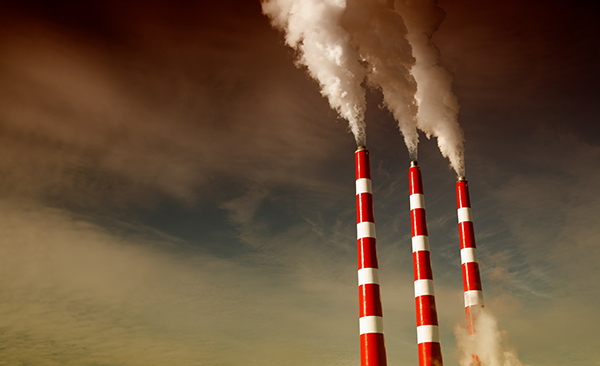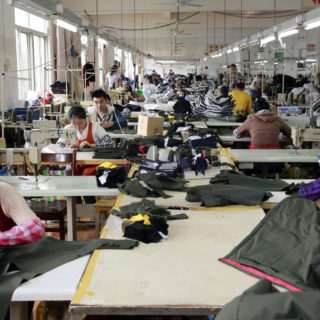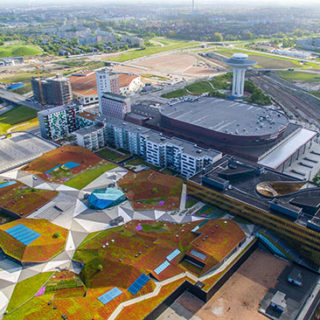A justice perspective on energy
As many countries around the world have started an energy transition from fossil fuel to more sustainable renewable energy sources, a group of researchers at the Pufendorf Institute for Advanced Studies are exploring the justice dimensions of energy systems and transitions.
The group – which brings together researchers from fields such as engineering, law, sustainability studies, human geography, environmental and energy systems, human ecology and environmental economics – is working under a theme called Energy Justice. The theme aims to explore the interconnections between energy systems, access and justice.
Dr. Vasna Ramasar, the coordinator of the theme, says that up to now the area has not been explored to any great extent.
‟Through our work, we can see that there is still a large gap in connecting studies of energy systems and transitions to questions of justice and fairness.”
The group is currently exploring how energy systems and energy transitions are impacting wider society from a justice perspective. According to Vasna Ramasar, there are many examples of negative impacts of fossil fuel energy production, from pollution in local communities to changes in the global climate. One local example is how coal, used to generate around 80 % of the electricity in South Africa, is leading to severe health impacts, with the Mpumalanga region viewed as having some of the dirtiest air in the world. Oil production has also severely affected local communities, with cases such as the pollution of the Niger Delta in Nigeria and the extraction of oil from tar sands in Alberta, Canada resulting in long-term social and environmental damage to the local area – leading to environmental justice struggles by local people.
The generation and use of energy through various fossil fuels not only impacts health and the local environment, but also contributes to global environmental change through climate change, since carbon dioxide emissions are the most significant greenhouse gas.
‟There is another social justice element involved in realising these large scale projects since the countries that are currently, and potentially worst affected by climate change are not the largest emitters of greenhouse gas, especially if one considers historical emissions”, she says.
In its work, the group has also come across a number of examples of how energy transmission is affecting wider society. A current example is the Dakota Access Pipeline, which is facing resistance from Native American communities – whose health and livelihood could be affected by the pipeline.
‟But energy justice is not only related to production, transmission and use, it also very much related to access. Who has access, what does energy cost, and who decides on tariffs and subsidies? Industries often have cheaper electricity costs than household users, for example, and state subsidies still support the fossil fuel industry”, says Vasna Ramasar.
‟Energy for whom, when, where and for what, at whose cost?”
Greener, more sustainable energy solutions can also be problematic from a justice perspective, she cautions, although they are most certainly better for the environment. That is because implementing energy projects, even those which are more sustainable, is seldom an uncontested process. It brings to the fore issues of allocation of energy resources, and distribution of costs and benefits – among citizens of urban and rural areas, north and south, poor and rich, and between current and future generations. It highlights tensions between environmental, social and economic concerns, and raises questions of whose voice counts in decision-making, and how politics and economics drive our current energy dependency.
Vasna Ramasar notes that wind farms in the north of Sweden have had a negative impact on Saami reindeer herders, since the farms are situated on the reindeers’ grazing land. A guest of the Pufendorf Institute, Anett Sasvari, spoke to the group about how the participation of the Saami people has been limited in the process of establishing the wind farms. Other examples centre on the growing of crops for biofuel in countries such as Tanzania, where local communities have seen their land and livelihoods taken from them by large investment companies, with very little input in the decision-making process or accrual of benefits.
‟Many of the issues that underpin our fossil fuel energy system will remain in the production of renewable energy if we do not explicitly consider the justice implications of our choices and our systems”, she says.
Overall, the research group wants to highlight the complexity of the energy field – and its interconnectedness with issues of power, inequality and deeply entrenched politics. According to Vasna Ramasar, there are no simple solutions to energy, which is why it is important not to present the transition to sustainable energy systems only in positive terms.
Because of the lack of simple solutions, the research group argues, it is crucial to consider not only the type of energy systems needed, but also who is driving the transitions, whose voices are heard in decision-making and whose interests are served by projects and policies.
‟Until we break some of the powerful interest coalitions, we will not see a transformation of energy towards something that is just and fair. Any energy transition must therefore account for questions of justice: energy for whom, when, where and for what, at whose cost?”
Text: Noomi Egan
Facts
-
More about energy justice
-
http://www.pi.lu.se/en/activities/theme-energy-justice






